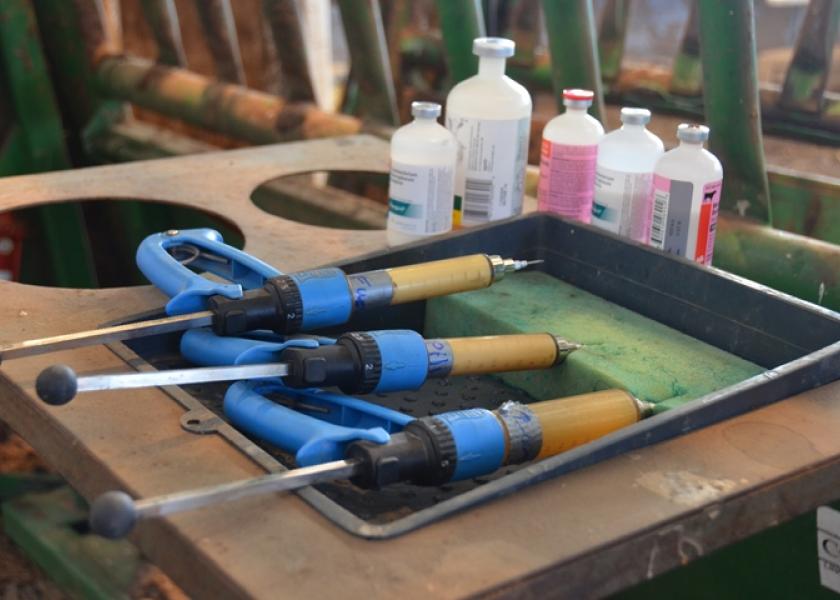Glenn Selk: Keeping The Value of Your Vaccine Dollars

Much has been written recently about the need for a new human vaccine for the coronavirus. Vaccines for several costly diseases of cattle have been in use for some time. Cattle owners need to remind themselves the vaccines they buy will be at their utmost effectiveness when first purchased.
A vaccine can cost over $3.00 per dose, and if not stored properly that vaccine can be rendered ineffective. Producers cannot afford to overlook the importance of how they store vaccines and handle them prior to injection.
Biological products should be stored under refrigeration at 35⁰ to 45⁰F unless the nature of the product makes storing at a different temperature advisable (APHIS 2007). If vaccines are not stored within this temperature range, efficacy to the calf can and will be reduced. Killed vaccines are especially susceptible to freezing temperatures. Freezing a killed vaccine will alter the adjuvant or delivery system of a killed vaccine. This, in turn, negatively affects the immune response to the antigen in the vaccine.
Modified live viruses (MLV) are more stable but can be in-activated if they are repeatedly cycled above or below the required temperature range (Gunn et al, 2013). Also, once activated by mixing, MLV’s effective life will be reduced to 1-2 hours and need to be maintained at the 35⁰ to 45⁰ F. This can be accomplished by only mixing the doses that you will use at that time and use a cooler to maintain temperature while working cattle.
Researchers from the University of Arkansas and Idaho analyzed the consistency of temperatures for different types, ages and locations of refrigerators over a 48-hour period. They found only 26.7% and 34.0% of refrigerators were within the acceptable temperature limit 95% of the time, respectfully.
Refrigerator location can also affect temperature. Refrigerators located in barns (35.6 ⁰F) were colder than in mud rooms (41.72 ⁰F) and kitchens (40.82 ⁰F). (Troxel and Barham 2009). Temperature within a 24-hour period can also be highly variable for individual refrigerators. Troxel and Barham (2009) demonstrated some refrigerators may take up to 8 hours to cool down to the 45⁰F, while others will remain too cold varying from 24.8⁰F to 35.6⁰F.
Producers need to be aware of these variations in temperature so they are able to adjust refrigerator temperature as needed. Thermostats can also be very variable from unit to unit, so keeping a thermometer inside works well to monitor and to make adjustments as needed. A simple digital thermometer can be purchased at one of the box stores for about $10. They can be placed on a shelf inside the refrigerator and easily read each time the door is opened.
For more precise monitoring of the temperature, indoor-outdoor thermometers work well to achieve this goal. The outdoor unit can be placed in the refrigerator while the LCD display can be hung with a magnet on the door. This allows temperature to be monitored without opening the door and many models will record the high and the low temperature in a 24 hour period so producers can adjust accordingly.
Much more about vaccine handling, storage, and use can be found in the Oklahoma State University Fact Sheet: “Use, Handling, and Care of Vaccines” VTMD-9100.
Related stories:
Glenn Selk: Spring Breeding Seasons Need to Stay On Time







